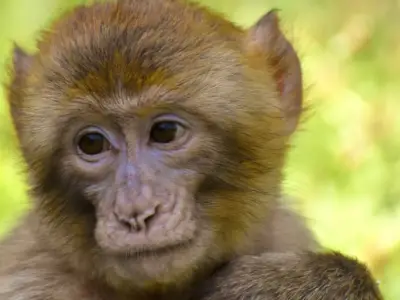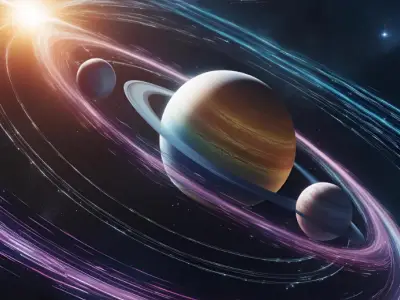Njord is a powerful deity in Norse Mythology connected to the sea, wind, and wealth. Whether you're exploring Norse myths for personal interest, spiritual reasons, or academic study, getting to know the Norse god Njord can enrich your understanding of Viking beliefs and their worship.
This blog post explores the myths, powers, and symbols surrounding this fascinating Norse god of wind, prosperity, and sea travel.
Jump to:
- Who Was Njord in Norse Mythology?
- Njord’s Myths
- The Role of Njord in Norse Storytelling
- What Powers Did Njord Possess?
- Symbols Associated with Njord
- Njord’s Lineage and Connections
- Why Is Njord Special?
- Njord in Modern Culture
- Njord’s Worship and Legacy
- Frequently Asked Questions About Njord
- Study Norse Mythology for £29
Recommended for you!
Best SellersWho Was Njord in Norse Mythology?
Njord (sometimes spelled Njörðr) is a prominent deity in Norse mythology, particularly among the Vanir, one of the two tribes of gods (the other being the Aesir). Unlike the warlike Aesir, the Vanir are associated with fertility, prosperity, and nature.
Njord was known as the Norse god of the sea, wind, and wealth. Sailors and fishermen often called upon him for safe voyages and plentiful catches. He was also known as the Norse god of fortune and money, as his blessings brought abundance and peace.
Njord’s meaning is closely linked with prosperity, the bounty of the sea, and harmonious living. His name likely stems from the ancient word “nerþuz,” referring to an Earth goddess, which further links him to the natural cycles and fertility.
Njord’s Myths
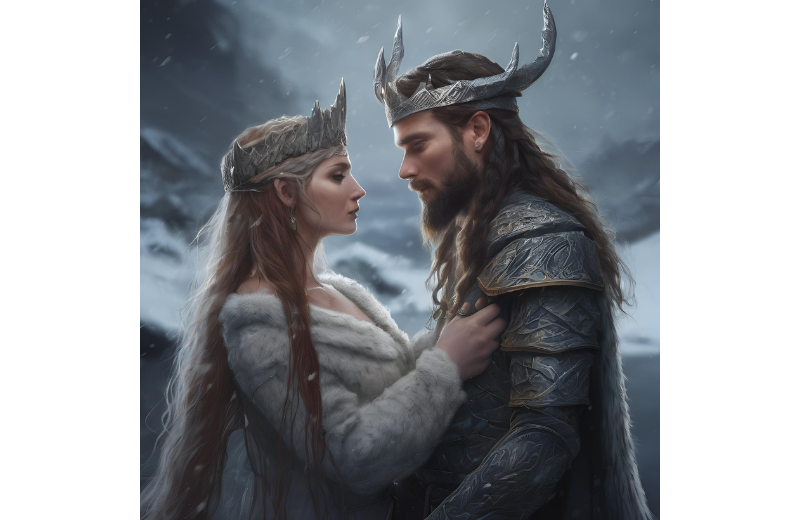
The Marriage of Njord and Skadi
One of the most famous stories involving Njord is his ill-fated marriage to Skadi, the goddess of mountains and winter. After the Aesir killed Skadi’s father, she travelled to Asgard to seek justice and reparations.
As part of the peace agreement, she was allowed to choose a husband from among the gods—but only by looking at their feet. She picked Njord, believing his well-groomed feet belonged to the handsome Baldr.
Sadly, their relationship was troubled from the beginning. Skadi loved the cold mountains, while Njord could not bear to be away from the sea. Unable to find happiness in each other’s worlds, they eventually agreed to live apart.
Njord and the Aesir–Vanir Truce
Another important tale featuring Njord comes from the end of the war between the Aesir and the Vanir, the two tribes of Norse gods. To secure peace, both sides exchanged hostages, and Njord—along with his children Freyr and Freyja—was sent to live among the Aesir.
This exchange was not a punishment, but a symbol of alliance and respect. Njord’s presence among the Aesir helped to restore harmony between the gods, showcasing his role as a mediator and bringer of peace. His peaceful nature and wisdom made him a valued figure in Asgard, even though he was originally of the Vanir.
Njord’s Role as a Provider
While there’s no single myth that focuses entirely on it, Njord’s reputation as a generous provider of wealth and safe sea travel is embedded throughout Norse lore. Seafarers prayed to him for calm waters and fishermen for bountiful catches. His ability to control the winds and seas made him one of the most important gods for the everyday survival of coastal communities.
These stories, though often passed down orally or implied rather than written in great detail, cemented Njord’s legacy as a god of fortune and natural balance. His influence was practical, protective, and deeply respected by those who depended on the ocean.
The Role of Njord in Norse Storytelling
Njord’s role was more about providing and protecting rather than fighting. His domain covered sea voyages, fishing, trade, and the winds that moved Viking longships across the waters. He was also seen as a peacemaker, especially during the truce between the Aesir and Vanir gods.
His calming, generous nature made him a favourite among coastal communities and traders, which explains why he was often invoked for both spiritual and practical matters.
What Powers Did Njord Possess?
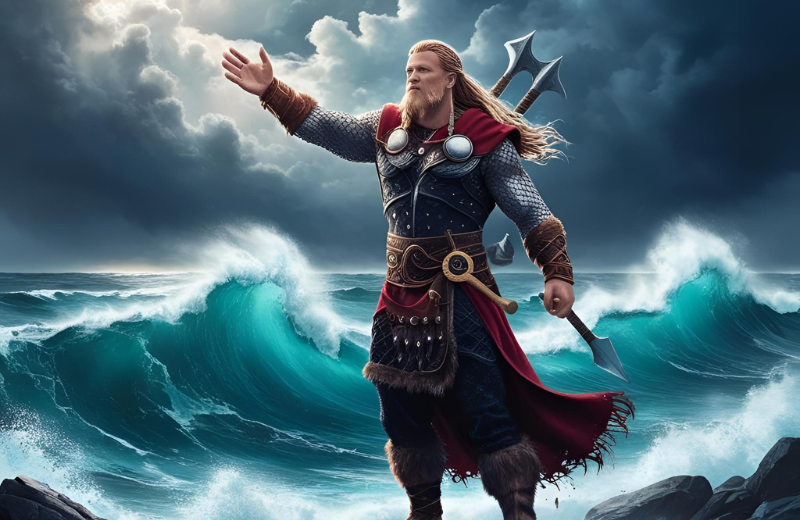
Njord’s powers are deeply tied to nature’s forces and the prosperity of those who live in harmony with it. His strength isn’t displayed through weapons or battles, but through the vital elements he commands and the peace he brings.
- Master of Sea and Wind: As the Norse god of the sea and wind, Njord had the extraordinary ability to calm turbulent waters and guide the direction of the winds. This power made him essential to seafarers and traders who depended on his favour for safe and successful journeys. His influence extended across coastlines, harbours, and open waters—where his presence could mean the difference between disaster and safe passage.
- Giver of Wealth and Peace: Beyond the physical realm, Njord was also known as the Norse god of wealth and money. He could bless people and communities with abundance, not just in material riches, but in peace, fertility, and balanced living. His power was seen in fruitful harvests, thriving markets, and harmonious relationships—manifestations of his role as a provider and protector of prosperity.
- The Embodiment of Natural Harmony: The domain of the Norse god Njord extended across multiple spheres: sea, wind, fortune, and peace. His divine power lay in the balance he maintained between humanity and nature. By controlling essential natural elements, he ensured both survival and growth, acting as a vital force for continuity and wellbeing.
Symbols Associated with Njord
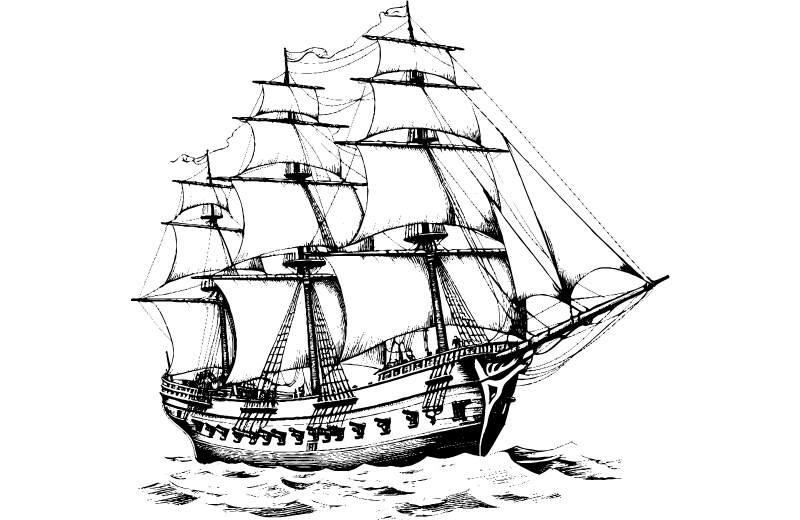
Njord may not wield a mythic weapon or have a companion animal, but the elements and imagery connected to him are rich with meaning and symbolic depth.
- Sea, Ships, and Seabirds: When thinking about what is the symbol for Njord, imagine ships gliding over calm waters, the sea breeze, and the calls of seabirds overhead. These reflect Njord’s power to protect travellers, provide bounty from the sea, and guide those at the mercy of the wind. A Viking longship, steady and swift, is perhaps the most vivid representation of his divine presence.
- Power Without Weapons: Unlike other gods, Njord has no famed weapon. His “armoury” is nature itself—storms he can still, tides he can command, and winds he can whisper into cooperation. His strength is silent, expansive, and ever-present.
- Symbol of Peace and Provision: Njord symbolises abundance, calm, and protection. His image invites trust, especially from those who live or travel by the sea. In modern spiritual practice, his essence might be honoured through water offerings, seashells, or acts of environmental stewardship, all representing his enduring legacy as a peaceful and powerful god of nature.
Njord’s Lineage and Connections
Njord’s significance in Norse mythology is deeply rooted in his familial ties and the divine legacy he helped shape:
- He is one of the Vanir, the tribe of gods associated with fertility, nature, and prosperity.
- He is the father of Freyja and Freyr, two of the most beloved gods in the Norse pantheon, symbolising love, abundance, and peace.
- He was once married to Skadi, a powerful jötunn and goddess of winter and mountains.
These connections place Njord at the intersection of nature, fortune, and mythological unity. As a Vanir god living among the Aesir, his presence represents peace between rival tribes, while his offspring carry forward his legacy of balance, harmony, and prosperity. Through Njord, the divine sea meets the fertile land, and old conflicts give way to fruitful collaboration.
Why Is Njord Special?
Njord stands out as a god of peace, nature, and plenty. In a mythology often filled with war, revenge, and fate, Njord brings a different kind of strength—one based on patience, prosperity, and balance.
His importance isn’t always flashy, but it’s deeply rooted in the everyday needs of the Norse people. From fishermen casting nets to traders seeking fortune, Njord’s presence was a comfort and a necessity.
Njord in Modern Culture

Although Njord isn’t as prominent as some gods, he still features in modern retellings and cultural references that highlight his connection to nature and prosperity. He appears in Neil Gaiman’s Norse Mythology, particularly in the story of his ill-fated marriage to Skadi, and is acknowledged in novels like Joanne M. Harris’s The Gospel of Loki.
While not a central figure in the God of War video game series, Njord is part of the broader mythological world that the game draws from. He’s also honoured in modern neo-pagan and Heathen spiritual practices, where rituals involving the sea, wind, and abundance often invoke his name as a symbol of balance and provision.
Njord’s Worship and Legacy
People looking to connect with Njord today often ask how to honour Njord. Traditional offerings include fish, seashells, or symbolic gestures like setting intentions for peace and prosperity. Spending time by the water, sailing, or simply respecting the natural balance of the world are ways people pay tribute.
Njord’s legacy is that of a benevolent force—one who doesn’t demand sacrifice through violence but instead offers reward through harmony with nature.
Recommended for you!
Best SellersFrequently Asked Questions About Njord
What is Njord the god of?
Njord is the Norse god of the sea, wind, and wealth. He governs maritime travel, fishing, trade, and fortune. His influence was especially important to Viking seafarers, who relied on his guidance for safe and profitable journeys. In coastal communities, Njord was often seen as a generous provider whose blessings brought stability and success.
Did Njord survive Ragnarok?
According to myth, Njord will return to the Vanir after Ragnarok, the prophesied end of the world. This suggests he either survives or is reborn, continuing the natural cycle. His return highlights the enduring nature of peace and prosperity, even in the face of cosmic destruction. Some sources interpret this as symbolic of nature’s resilience and the rebirth of the world.
Who did Njord have kids with?
Njord’s children—Freyr and Freyja—are said to be born from a union with his unnamed sister, although some interpretations vary. This pairing reflects the Vanir’s less rigid societal structures compared to the Aesir gods. Both children went on to become major deities in their own right, embodying fertility, beauty, and peace.
Study Norse Mythology for £29
Norse mythology is full of fascinating gods, legends, and deeper meanings waiting to be explored. If you’re fascinated by Hel and Norse mythology, why not take your knowledge further? At Centre of Excellence, you can enrol in the Norse Mythology Diploma Course for just £29! Learn about the gods, myths, and legends in greater depth and explore the rich history of the Vikings.










